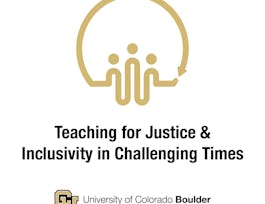Increasingly, terms such as “colonialism,” “decolonization,” and “social structures,” appear in media, conversations, and educational spaces, often without nuanced explanations of these concepts and how they relate to current U.S. society and the individuals in it.



Ongoing U.S. Settler Colonialism & Native Peoples Teach-Out


Instructors: Melissa Horner
Sponsored by Mojatu Foundation
What you'll learn
Develop a living understanding of ongoing settler colonialism in the U.S.
Analyze everyday forms of settler colonialism in your own life, work, and interests.
Describe Indigenous Peoples/Native Nations' robust presence.
Dream alongside others about anti-colonial futures.
Details to know
See how employees at top companies are mastering in-demand skills

There are 7 modules in this course
What's included
1 video2 readings
This module introduces the U.S. as a current settler colonial nation and guides participants in considering their own relationships (or lack thereof) with diverse and numerous Indigenous Peoples/Native Nations
What's included
2 videos1 reading2 discussion prompts2 plugins
This module provides the first cornerstone in understanding ongoing settler colonialism—the attempt to eliminate Native Peoples. Additionally, this module showcases the enduring presence of Native Peoples despite settler colonialism's ongoing attempts of erasure.
What's included
5 videos4 readings2 discussion prompts2 plugins
This module provides the second cornerstone in understanding ongoing settler colonialism—the imposition of property, ownership, and possession. Furthermore, this module highlights pre-colonial (which are also current), Indigenous approaches to land, knowledge, and more-than-human relatives that are not rooted in ownership and possession.
What's included
4 videos4 readings4 discussion prompts1 plugin
This module outlines the third cornerstone in understanding ongoing settler colonialism—the production of anti-relationality via the erasure, damage, and unavailability of certain kinds of relationships between people, land, ideas, cultures, and more-than-human relatives. This settler colonial anti-relationality prioritizes principles of individualism, human-centeredness, and ownership/property. Additionally, this module demonstrates the centrality of meaningful relationships in Indigenous worldviews and the importance of interconnection, care, responsibility, collectivity, consideration, and reciprocity.
What's included
4 videos3 readings3 discussion prompts4 plugins
This module provides the fourth cornerstone in understanding ongoing settler colonialism—the naturalization (making it seem typical and unremarkable to all people in the U.S.) to have limited life options. Specifically, settler colonialism socializes individuals, families, and groups of people into assuming there are only certain settler colonial-approved ways—often singular, binary, or on a narrow spectrum—to learn, pray, create a family, love, participate economically, rest, eat, organize time, dress, govern, birth, die, attend to health, work, generate/share knowledge, be in relationships, conduct research, and so much more. Furthermore, this module highlights the expansive possibilities that exist for social configurations, governing, worldviews, and more that Indigenous knowledges and futures show us.
What's included
4 videos7 readings2 discussion prompts1 plugin
***
What's included
1 video1 reading
Instructors


Offered by
Why people choose Coursera for their career




Recommended if you're interested in Social Sciences

University of Colorado Boulder

Yale University

Dartmouth College

University of Colorado System

Open new doors with Coursera Plus
Unlimited access to 10,000+ world-class courses, hands-on projects, and job-ready certificate programs - all included in your subscription
Advance your career with an online degree
Earn a degree from world-class universities - 100% online
Join over 3,400 global companies that choose Coursera for Business
Upskill your employees to excel in the digital economy


